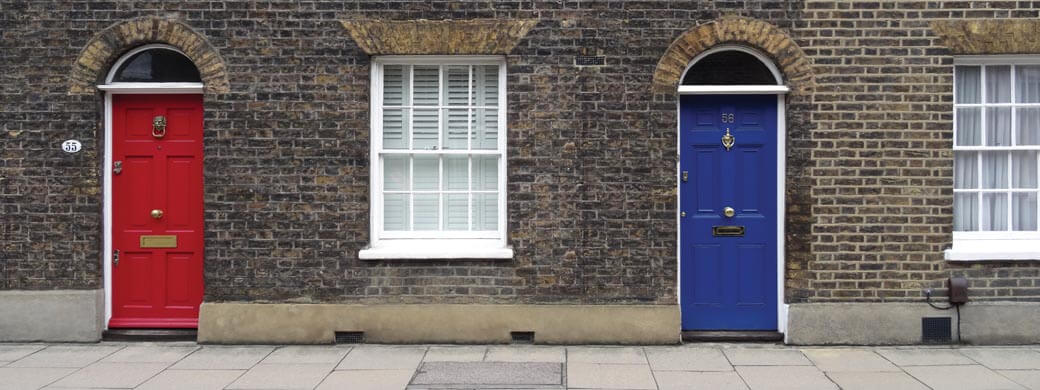What to know about estate agent fess.
Estate agent costs can vary enormously, so when it comes to fees, it’s important to understand exactly what you’re paying for when you’re selling your house or property.
To help you find what works best for you, we’ve set out everything you need to know about estate agent fees, and factors to consider that may affect how much you will end up having to pay.
How much are estate agent fees?
In today’s market, price is a big factor for many property sellers, especially because of the other costs you have to pay out for moving home. So first, let us explain the difference between a commission based and fixed fee agent.
Commission fees
Some agents will charge a commission for their services, which is a percentage value of the final agreed sale price, and as it is wholly dependent on the price of property for sale, costs can really vary. This fee typically covers:
a realistic property valuation based on local market research, trends and past sales data;
accurate floorplans and measurements;
professional photographs;
the installation and removal of a ‘for sale’/’sold’ sign;
assisted viewings;
online marketing of your property; and
negotiation costs.
Fixed Fees
A fixed fee, however, does what it says on the tin – it is a set price for an estate agent’s specific service. But it’s important to remember that with this model, there could be a choice of packages available with varying levels of service, aimed at different price points. Prices usually start from around £800 but costs can escalate if you opt for added extras – like a floor plan or assisted viewings – so be sure to check what’s included in the bundle before you sign on the dotted line.
Some estate agents offering a fixed fee option will also give you the choice to pay upfront or defer the payment and pay at a later date. Now, whilst the latter may seem attractive, it’s not without conditions. If you choose to defer, a loan agreement will be created with a third-party financial advisor and you may incur additional costs (such as interest) so make sure you understand exactly what you are signing up to.
Whatever type of estate agent you choose to use, always make sure they are Propertymark Protected.
When do you pay estate agent fees?
Estate agent fees are normally due upon completion (when the property has been sold and contracts exchanged), however, some estate agents may require you to pay upfront. Be sure to check the estate agency agreement, as this will stipulate when fees will need to be paid.
Usually, your agent will send their invoice to your solicitor and upon completion of the sale, your solicitor will settle the agent’s bill directly out of your sale proceeds before transferring the balance to you.
Be aware of the terms of payment, and make sure your agency allows a few days for the money to be transferred before they start charging interest. Many estate agents will give you a five to 10-day grace period in which to make payment before charging you a daily interest rate, however, the number of days in which to pay will be stated in your contract.
So, what should you be asking your estate agent?
There are a lot of questions you should be asking your agent, particularly if you’re a first-time seller, but when it comes to costs, the below should cover the basics:
- What is included in your estate agency fee?
- Does your quote include VAT?
- Will you provide floor plans and professional photos of my house, and is this at an extra cost?
- Will you provide and install a ‘for sale’ board, and will I be charged extra for this?
- Do I have to pay an additional fee for marketing?
- Where will you advertise my property?
- How many websites will my property listing feature on?
- Do you charge extra for ‘enhanced’ listings or being a ‘featured property’ on Rightmove/Zoopla etc?
- Are there any other costs I might incur?
- Whilst it’s tempting to go with the cheapest option, you should pick an estate agent that is right for you. For peace of mind, you may want to get quotes from three or four trusted agents.
What does the Estate Agent’s contract cover?
Contract
Estate agents are required by law to tell you what is included as part of their fee, so make sure you know exactly what you’re paying for or could potentially be charged for.
Your contract is likely to include a tie-in period, which locks you into an estate agency agreement for a minimum amount of time – typically between four to 12 weeks. If you wish to terminate the contract during this time you may incur a fee, so don’t forget to check to see if your contract gives you the flexibility to end an agreement without being charged. If it doesn’t, speak to your agent as this may be negotiable.
Some estate agents may also charge a withdrawal fee if you choose to remove your house from the market within a certain timeframe. The terms of the fee will be written into your contract so make sure you have read and understood what you’re agreeing to before you sign on the dotted line.
It’s also important to be aware of contracts that include a “ready, willing and able purchaser” clause. This means that you will be required to pay part of all your estate agency fees, regardless of whether your property sells or not.
If you decide to use more than one estate agent to sell your home, firstly check the small print to ensure your contract allows it. If your agreement states your estate agent has ‘sole selling rights’, this means they are the only agent allowed to sell your home during the stipulated period, and even if you find your own buyer, you will still have to pay that estate agent. This is not to be confused with a ‘sole agency’ clause, however, which is similar, but if you find your own buyer, you won’t have to pay anything to the estate agent.
We would always recommend that you read your contract thoroughly before agreeing to any terms, and if you come across any words that you’re unsure of, take a look at our jargon-busting guide to help you beat the legal language.
Added extras
Some estate agents offer additional services (such as the use of in-house conveyancers or solicitors) which will be charged at an additional cost, on top of their standard agency fee. Prices for these services must be detailed upfront so be sure to have a copy of these in writing (inclusive of VAT) and when payment for them is expected.
Often your agent will ask if you want them to carry out an EPC assessment for you, which needs to be undertaken on a property every 10 years. Now, whilst anyone can arrange an EPC, it’s often more convenient to get your estate agent to do this for you, especially if those in your household all work full-time. Consider how much extra it will be for your agent to arrange this for you compared to you arranging it yourself and assess whether it’s worthwhile to you.
Optional extras, such as featured or premium listings and enhanced marketing packages come at a premium and can range anywhere from £100 upwards. Check what you can afford and think about how much value it will add to your listing before agreeing to any add-ons.
Use an NAEA Propertymark Protected Agent
By using an agent that is Propertymark Protected, you can be confident that they will be professional and transparent with their terms and what they charge. All Propertymark agents undertake regular training and are experts in helping you sell your property.









